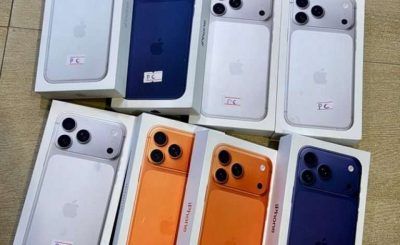Views: 27
5 Gen Z Purchasing Trends Every Brand Must Know (With Real-World Examples)

Meta Description: Discover how influencers, social media, and strong values shape Gen Z purchasing trends. Learn what brands must do to connect with this digital-native, purpose-driven generation. Gen Z is quickly becoming one of the most powerful consumer groups, and business brands and entrepreneurs can’t afford to ignore it. But reaching Gen Z isn’t just about selling to them; it’s about understanding them and their consumer behaviors. This generation grew up with smartphones, social media, and streaming platforms. They are true digital natives who are always online. But even though they share a strong connection to technology, Gen Z is not one single type of person. They’re a diverse group with different tastes, backgrounds, and values.
If you want to market to Gen Z successfully, you need to know how they think, what they care about, and where they spend their time online. In this blog post, we’ll explore the Gen Z purchasing trends: 5 trends + brand examples
Who is the Gen Z shopper?
Gen Z shoppers come from many different backgrounds. Less than half of them identify as White. Some are Latino, Black, and Asian. This makes Gen Z one of the most diverse generations so far.
Most Gen Z shoppers don’t have children yet, with the majority of them still child-free. Many are still in school or just starting their careers.
Generation Z is a diverse group. Many are young, earning lower incomes, and still figuring out their adult lives. Brands that want to connect with them should keep these differences in mind when creating products and marketing campaigns.
Getting to Know Gen Z: What Makes This Generation Different in 2025
Generation Z is making a big impact on the world. They’ve grown up with smartphones, social media, and the internet. Because of this, they think and act differently from older generations.
They’re not just the newest group in the workforce or marketplace; they’re changing how we see technology, culture, and social issues. Gen Z values honesty, fairness, and innovation. They don’t just copy what millennials or baby boomers did. Instead, they’re setting their own trends and challenging old ideas.
Generation Z also cares deeply about social issues. Whether it’s climate change, mental health, or equality, they want to see real change, and they expect brands to be part of the solution. They’re more diverse than past generations, which helps shape their open-minded views and strong sense of purpose.
In 2025, Gen Z’s influence goes beyond what they buy. They’re creating content, building businesses, and starting conversations. They use social media not just for fun but to learn and share ideas. They prefer mobile-first content, expect quick responses, and support brands that stand for something real.
5 Gen Z Purchasing Trends Every Brand Must Know
1. Sustainability Matters
Today’s Gen Z shoppers are paying close attention to how their choices affect the world. They want to buy from brands that care about the environment and treat people fairly. For them, it’s not just about the product; it’s about the impact behind it.
That’s why many Gen Z consumers are choosing eco-friendly products and supporting businesses that are honest and responsible. They look for companies that use sustainable materials, reduce waste, and are open about how they do business.
Gen Z can tell when brands are faking it. To earn their trust, companies need to take real action, like using ethical supply chains, cutting down on pollution, and showing real progress.
Brands that make sustainability a true part of their mission have a better chance of gaining Gen Z’s loyalty.
2. Dependence On Influencers And Trends
Gen Z doesn’t trust traditional ads the way older generations did. Instead of TV commercials or banner ads, they look to influencers, friends, and viral trends to help them decide what to buy.
Influencers play a big role because they feel real and relatable. Their honest reviews and everyday content make them more trustworthy than big brand messages. When a brand works with someone who truly connects with Gen Z, it can grab more attention and build trust.
Gen Z also loves to follow trends. They keep up with what’s popular on platforms like TikTok, Instagram, and YouTube. Brands that stay up to date with new trends and social movements have a better chance of staying relevant and catching Gen Z’s interest.
To connect with Gen Z, brands need to focus on real voices, fresh ideas, and what’s happening right now.
3. Mobile-First Mindset
Most Gen Z prefer to use their phones over other devices. For them, mobile isn’t just a tool; it’s how they shop, talk to friends, play games, learn new things, and stay informed about the world.
It’s no surprise they spend so much time on their screens. Gen Z expects everything to be fast, easy, and available on mobile. That’s why top brands like Nike are doing so well; they understand this mobile-first mindset. Nike uses platforms like Instagram to let users explore and shop for products directly through features like “View Shop.” It’s simple, seamless, and perfect for Generation Z.
If you want to reach Generation Z, your content and shopping experience must be mobile-friendly. That means:
- Fast, smooth apps
- Websites that work perfectly on phones
- Social media content that’s fun, useful, and easy to interact with
It’s not just about making things look good on a small screen. It’s about creating an experience that fits into Gen Z’s fast-paced and digital lifestyle.
Generation Z grew up online. Social media is where they learn, shop, and express themselves. They care about real issues like mental health and social justice, and that shows in how they choose what to buy. They also make quick decisions, often influenced by what they see on TikTok or Instagram. So, if you want to connect with this diverse, smart, and socially aware generation, your content must live where they do—on mobile.
4. Personalized Experiences
Gen Z is growing up in a world full of choices and constant online noise. Because of that, they want experiences that feel made just for them. They expect brands to know what they like and offer things that match their interests.
From personalized ads to custom product suggestions, Gen Z looks for brands that appeal to them. To do this well, companies need to use data and smart technology to offer the right message at the right time.
When brands focus on personalization, they build stronger relationships with Gen Z. It helps increase trust, engagement, and long-term loyalty.
If companies want to win over this generation, the key is simple: understand their world, speak their language, and make them feel seen. The brands that do this well will lead the way in the future.
5. Social media shopping
Gen Z’s follows influencers more than any generation before. In fact, almost 75% of Generation Z follow influencers on social media. For them, influencers are a key part of how they discover new products and decide what to buy.
They trust influencers who know what they’re talking about and who are honest about the products they promote. This makes influencer marketing one of the most powerful tools for reaching Generation Z.
Gen Z’s shopping habits reflect their values. They want to support brands that care about things like mental health, social justice, and the environment. They also want those brands to understand their digital lifestyle.
To connect with Gen Z’s, brands need to go beyond old-fashioned ads. They need to:
- Be active on social media
- Work with influencers who truly connect with Gen Z
- Show that they care about the same issues Gen Z cares about
Conclusion:
Gen Z also tends to make quick decisions and impulse buys based on what they see online. That means brands must act fast, stay updated on trends, and keep their content real and engaging.
By kingkentus








You must be logged in to post a comment.